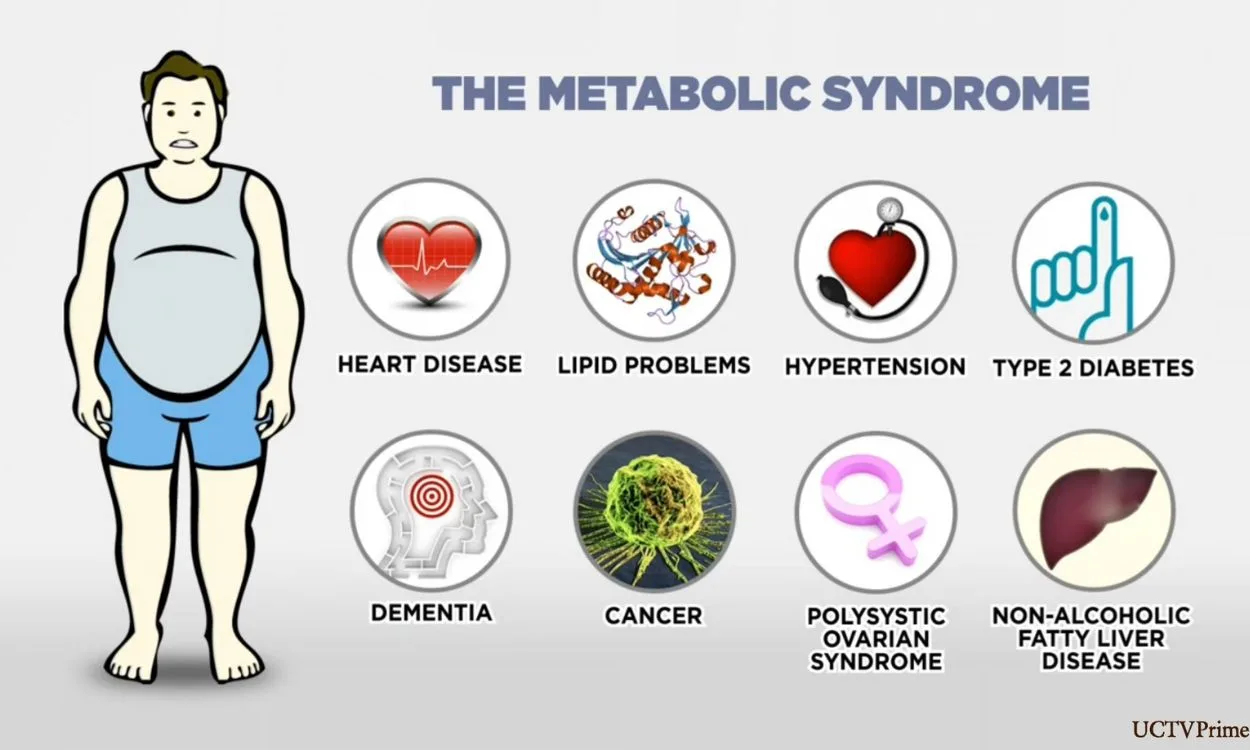How Does Metabolic Syndrome Influence Heart Disease Risk?
Metabolic syndrome is a cluster of conditions that occur together, increasing the risk of heart disease, stroke, and diabetes. It is characterized by a combination of factors such as high blood pressure, elevated blood sugar levels, excess body fat (especially around the waist), and abnormal cholesterol levels. In this article, we will delve deeper into how metabolic syndrome influences heart disease risk and the importance of addressing this condition for a healthier life.
Metabolic Syndrome and Heart Disease
- Insulin Resistance: One of the key components of metabolic syndrome is insulin resistance, where the body’s cells become resistant to the effects of insulin. Insulin is responsible for regulating blood sugar levels, so when cells become resistant, blood sugar levels rise. High blood sugar levels can damage blood vessels and increase the risk of heart disease.
- High Blood Pressure: Metabolic syndrome is often associated with hypertension or high blood pressure. High blood pressure puts strain on the arteries and can lead to the development of atherosclerosis, a condition where plaque builds up inside the arteries, narrowing them and increasing the risk of heart disease.
- Dyslipidemia: Metabolic syndrome is also characterized by abnormal lipid levels, including high triglycerides and low levels of HDL cholesterol (the “good” cholesterol). This lipid profile is closely linked to an increased risk of heart disease.
- Central Obesity: Excess fat accumulation around the waist is a defining feature of metabolic syndrome. This visceral fat is metabolically active and produces chemicals that promote inflammation and insulin resistance, both of which can contribute to the development of heart disease.
- Inflammation: Chronic inflammation is a common feature of metabolic syndrome and plays a crucial role in the development and progression of heart disease. Inflammatory markers, such as C-reactive protein (CRP), are often elevated in individuals with metabolic syndrome.
Addressing Metabolic Syndrome for Heart Health
It is essential to address metabolic syndrome to reduce the risk of heart disease and improve overall health. Here are some key strategies:
- Lifestyle Modifications: Making healthy lifestyle changes can have a significant impact on metabolic syndrome and heart disease risk. These include adopting a balanced and nutritious diet, engaging in regular physical activity, maintaining a healthy weight, and managing stress levels.
- Dietary Interventions: A diet rich in fruits, vegetables, whole grains, lean proteins, and healthy fats can help improve metabolic syndrome and reduce heart disease risk. Avoiding processed foods, sugary beverages, and excessive consumption of saturated and trans fats is crucial.
- Physical Activity: Regular physical activity can help control weight, improve insulin sensitivity, lower blood pressure, and reduce inflammation. Aim for at least 150 minutes of moderate-intensity aerobic activity per week, along with strength training exercises.
- Medication: In some cases, medication may be prescribed to manage specific aspects of metabolic syndrome, such as high blood pressure, elevated blood sugar levels, or abnormal cholesterol levels. It is important to work closely with a healthcare professional to determine the most appropriate treatment plan.
Fitpaa: A Holistic Approach to Health and Fitness
While addressing metabolic syndrome is crucial for heart health, it can be challenging to navigate the journey alone. This is where Fitpaa can help. Fitpaa is an end-to-end AI-driven metabolism monitoring and management technology that provides personalized guidance and support to achieve health and fitness goals.
With Fitpaa’s comprehensive approach, individuals can benefit from:
- Metabolism Assessment: Fitpaa’s Metabolism Monitoring Technology helps identify the root cause of health conditions by assessing the individual’s current metabolism. Optimizing metabolism is essential for achieving health and fitness goals with a 100% guarantee.
- Personalized Fitpaa Capsule: Based on the metabolism assessment, Fitpaa’s expert team of fitness coaches, nutritionists, and doctors prepare a personalized Fitpaa Capsule. This all-in-one health and fitness plan optimize metabolism, helping individuals achieve their goals while strengthening their entire body.
- Real-Time Guidance and Support: Fitpaa’s Real-Time Guidance Technology incorporates concepts from cognitive-behavioral therapy to provide timely nudges, habit-building techniques, and purpose-finding strategies. The Fitpaa mobile app acts as a virtual workout trainer, diet tracker, and performance tracker, making it easier to follow the personalized Fitpaa Capsule.
- Expert Monitoring and Review: Fitpaa’s team of fitness planners, nutritionists, trainers, and doctors regularly review individuals’ progress and make course corrections as needed, ensuring optimal results.
Fitpaa aims to create a world where individuals can be fit, healthy, confident, and fulfill their dreams. By combining the latest research in lifestyle medicine and behavioral therapy, Fitpaa provides a holistic approach to health and fitness, helping individuals achieve their goals with guaranteed results.
Don’t wait any longer to start your journey towards a healthier and fitter life. Download the Fitpaa app and experience the joy of achieving your health and fitness goals. Your wellbeing is Fitpaa’s mission!









